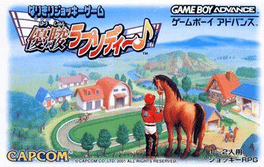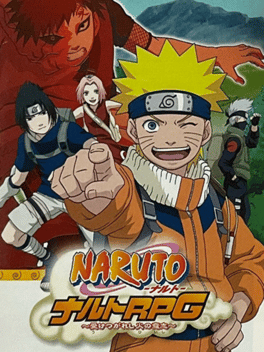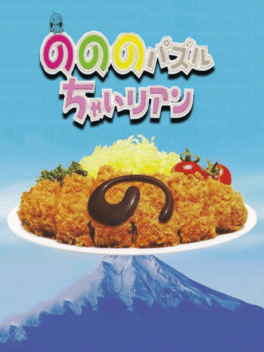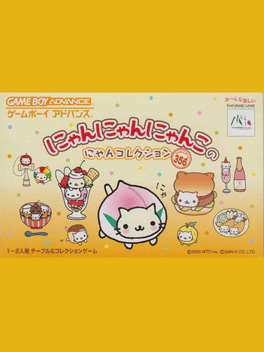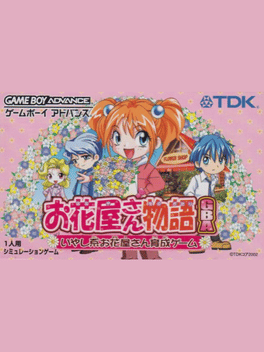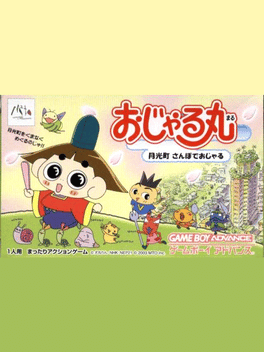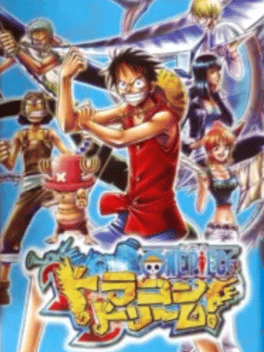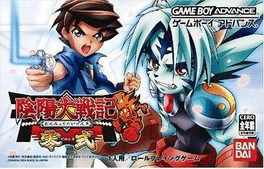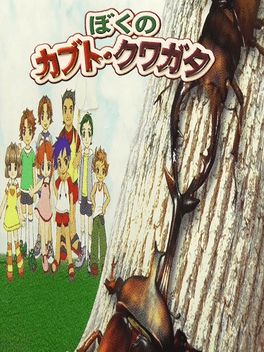Most Popular Game Boy Advance Games - Page 68
-
Yuushun Rhapsody
2001
Yuushun Rhapsody
2001
Yuushun Rhapsody is a Sports game, developed by TOSE and published by Capcom, which was released in Japan in 2001. -
Naruto RPG: Uketsugareshi Hi no Ishi
2004
Naruto: Path of the Ninja is an RPG based on the anime Naruto. It was released in Japan on Game Boy Advance. -
Natural 2: Duo
2002
Natural 2: Duo
2002
Natural 2: Duo is an Adventure game, published by Omega Micott, which was released in Japan in 2002. -
Nippon Pro Mahjong Renmei Kounin: Tetsuman Advance ~Menkyo Kaiden Series~
2002
Nippon Pro Mahjong Renmei Kounin: Tetsuman Advance ~Menkyo Kaiden Series~ is a Miscellaneous game, published by Kaga Tech, which was released in Japan in 2002. -
Nonono Puzzle Chalien
2005
Nonono Puzzle Chalien is a Miscellaneous game, developed by Creatures Inc. and published by Nintendo, which was released in Japan in 2005. The title was romanized in Super Smash Bros. Ultimate. -
Nobunaga Ibun
2002
Nobunaga Ibun
2002
Nobunaga Ibun is a Strategy game, published by Global A, which was released in Japan in 2002. -
Nyan Nyan Nyanko no Nyan Collection
2005
Nyan Nyan Nyanko no Nyan Collection is an Action game, developed and published by MTO, which was released in Japan in 2005. -
Ochaken Kururin: Honwaka Puzzle de Ho~ttoshiyou?
2004
Ochaken Kururin ~ Honwaka Puzzle de Ho~ttoshiyou? is a Simulation game, published by MTO, which was released in Japan in 2004. -
Ochaken no Bouken-jima: Honwaka Yume no Island
2006
Ochaken no Bouken-jima: Honwaka Yume no Island is a Simulation game, developed and published by MTO, which was released in Japan in 2005. -
Ochaken no Heya
2004
Ochaken no Heya
2004
Ochaken no Heya is a Simulation game, published by MTO, which was released in Japan in 2003. -
Ochaken no Yume Bouken
2005
Ochaken no Yume Bouken is a Simulation game, developed and published by MTO, which was released in Japan in 2005. -
Ohanaya-san Monogatari GBA
2002
Ohanaya-san Monogatari GBA is a Strategy game, published by TDK Core, which was released in Japan in 2002. -
Ojarumaru: Gekkou Machi Sanpo de Ojaru
2003
Ojarumaru: Gekkou Machi Sanpo de Ojaru is an Action game, published by MTO, which was released in Japan in 2003. -
Okuman Chouja Game: Nottori Daisakusen!
2001
Okuman Chouja Game: Nottori Daisakusen! is a Miscellaneous game, developed by Mobile 21 and published by Takara, which was released in Japan in 2001. -
One Piece: Dragon Dream!
2005
One Piece: Dragon Dream is a Japanese action board game for the Game Boy Advance console featuring characters from the popular anime and manga series One Piece. This game is a sequel to the Playstation game One Piece Ocean's Dream. The games had also been made into a filler arc called the Ocean's Dream arc, which has a similar storyline as the games. The game was developed and released in April 28th, 2005 by Bandai. -
One Piece: Going Baseball - Kaizoku Yakyuu
2004
One Piece: Going Baseball is a Japanese only game released for the GameBoy Advance in 2004. The controls are simple and the basic point of the game is to choose a team and try to win in a tournament against all the other teams. There is a story mode, which is needed to unlock the final team, and a minigame mode. The game appears to take place after the Skypiea Arc, as the crew is seen in the beginning wearing their outfits from Skypiea, and the Skypiea arena is the farthest point that the game goes up to. -
Onmyou Taisenki: Zeroshiki
2004
Onmyou Taisenki: Zeroshiki is a Role-Playing game, developed by Kamui and published by Bandai, which was released in Japan in 2004. -
Oshaberi Inko Club
2002
Oshaberi Inko Club
2002
Oshaberi Inko Club is a Strategy game, published by Alpha Unit, which was released in Japan in 2002. -
Minna no Shiiku Series 2: Boku no Kuwagata
2001
Boku no Kuwagata is an Adventure game, published by MTO, which was released in Japan in 2001. -
Minna no Shiiku Series: Boku no Kabuto - Kuwagata
2003
Boku no Kabuto - Kuwagata is a Strategy game, published by MTO, which was released in Japan in 2003.
